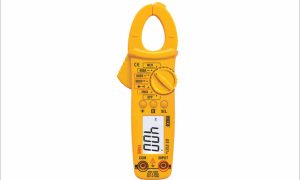Monitoring temperature and humidity control within a clean room are essential to reduce microbial growth, control static build-up, and ensure employee comfort.
Acleanroom is an engineered space, which maintains a very low concentration of airborne particulate where pollutants like dust, airborne microbes, and aerosol particles are filtered out and not allowed to accumulated therin in order to provide the cleanest area possible. Most cleanrooms are used for manufacturing products such as Electronics, Pharmaceutical products, and medical equipment, Diary etc.
A cold store is a large refrigerated room or building designed for storage of goods in an environment below the outdoor temperature. Products needing refrigeration include Fruit, Vegetables, Agreculturer produce, Seafood and meat. In cold Rooms temperature required, plays major role in deciding the thickness of panels.
Monitoring of temperature and humidity control within a cleanroom is essential to reduce microbial growth and control static build-up, as well as ensuring employee comfort. Usually cleanrooms are deigned to house HEPA filters to assist in the supply of clean air and gain better contamination control. The clean air is often managed through air conditioning to control the comfort levels for the operators and stabilise the environment for your product.
Construction of a modern building needs PUF as an effective insulation and air barrier material. Thanks to its 90% closedcell content, polyurethane foam combines industry-leading air permeance ratings and a superior insulation R-value to make a significant contribution to achieving the mandates of the modern building. “Insulation” is a material that retards or prevents the progression or transmission of electricity, heat, moisture, shock, or sound from one item or medium to another. The definition establishes that the primary use of insulation is to avoid heat transfer from the outer unclassified area to an inner classified area. This insulation is core to HVAC. When designed with the right materials for areas with space restrictions (Modular Panel Cleanrooms) where you need temperature/ humidity control precision with specific air-flow, HVAC ensures prevention of heat loss and results in the efficient and effective use of energy. Thus Cleanroom AHUs can be designed to ensure a particular class is maintained.
Insulation of Cleanroom Panel depends on its varied usage.
PUF (Poly Urethane Foam): It is the most commonly used insulation material in the industry that offers a balance of thermal insulation property as well as low weight and economical option. It has a density of 42 Kg/m3, and K-Value of 0.021, R-Value of 5.6-7 per inch.
PIR ( Poly Isocyanurate): Due to recent developments in insulation material, there has been an immense interest in PIR as its density is around 45 Kg/m3. Also, its R-Value is 5.6-7 per inch, and K-Value is 0.021, making it a lighter option against PUF. Further, the temperature resistance is beyond 200 C makes it a highperformance insulation material over PUF.
Rockwool: A mineral-based fibre mass that can be highly resistant to temperature variations, Rockwool has a density of 48 – 160 Kg/m3, and K-Value of 0.035, and R-Value of 3.3 per inch. Hence this is the most desirable option that offers multiple advantages of sound, thermal and fire resistance up to eight hours depending on thickness.
Skin/Sufaces used in Sandwich Panels: Surface Finish is crucial to cleanroom panel selection as each surface can present a unique challenge and impact the production process.
SS finish (Stainless Steel)
Sandwich panels also are made from SS 304, provide excellent corrosion resistance to cope up with the fumes of various chemicals generated during processing. The SS 304 panels not only work well in harsh environments but are easy to disinfect and clean even with chemicals of varying pH levels during a batch change over in facility.
Pre-painted GI (PPGI) and Powdercoated GI (PCGI)
As opposed to GI, PCGI, or PPGI differs in the coating thickness over the GI sheet. In the case of PPGI, there is a thin UV resistant coating layer that consists of 30 microns, and continuous lines are used in the sheet manufacturing facility, and (check the meaning). In contrast, PCGI is coated with magnetically charged particles, and the thickness is around 0.6-0.8 mm. Cost wise Powder coated panels are high then PCGI panels.
Properties of Clean Room Panels
- Lower Cost & Quick Turnaround Optimization of construction costs Thermal Capacity & Energy Saving
- Strong & Durable
- Easy Installation
- Low Maintenance
- Anti-Corrosive
- Functional Detachable System
- Aluminum Post Cap/Coving Fitting:
- Easy Cabling Access: Post caps are detachable and press-fitted making cabling easier
- Elegant and Durable
- Easy Operation
- Fire Resistant
- Lightweight
- No Growth of Micro-Organisms
- Easy Cleanliness, Also, there are no corrosion risks or rusting problems that can hinder the cleaning process Durable
- Perfect Insulation.
Density The density of the foam material is of great importance because the cost of the raw material is more significant than the cost of manufacture, so that it is important to obtain the required physical properties with the lowest possible density. The density of the rigid foam core of IFPL (Industrial Foams Pvt Ltd) sandwich panels may vary within the following interval of values:- Polyurethane (PUR) B2: 40 ± 4 Kg/m3
- Polyurethane (PUR) B3: 38 ± 4 Kg/m3
- Polyisocyanurate (PIR): 45 ± 5 Kg/m3
foam is mainly due to the heat conduction through the cell gases within the single cells and the cell structure itself. The thermal conductivity is significantly influenced by the type of gas trapped in the cells of the foam, and most blowing agents used are very favourable in this respect. In PUF the value of the thermal conductivity is 0.020÷0.024 W/ m°C immediately after manufacture. Owing to the gas tightness of panels with metallic faces, subsequent changes in the cell gas composition are very limited although the aged long term value may increase to 0.024÷0.030 W/m°C. It should be noted that this value are not significantly dependent on the density within the usual range of practical applications in sandwich panel constructions. Certainly, the thermal conductivity may be influenced by humidity because water has a better thermal conductivity than dry air. It is particularly important to ensure that moisture does not penetrate the foam in cold stores where the temperature is maintained below the freezing point in Cold storages. In cold Rooms temparature required, plays major role in deciding the thickness of panels. Industrial Foams, manufacture all types of Clean Room Panels and Cold Room panels in all sizes from Discontinuous and newly installed Continuous Line at it’s Greater Noida Plant.
“Inputs compiled and shared by Industrial Foams Pvt. Ltd.”
Cookie Consent
We use cookies to personalize your experience. By continuing to visit this website you agree to our Terms & Conditions, Privacy Policy and Cookie Policy.















